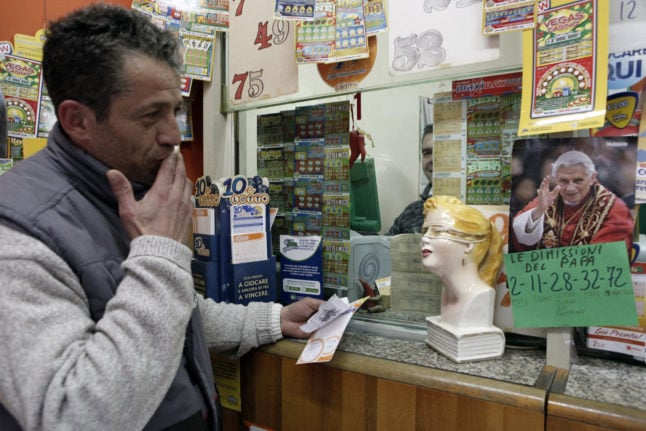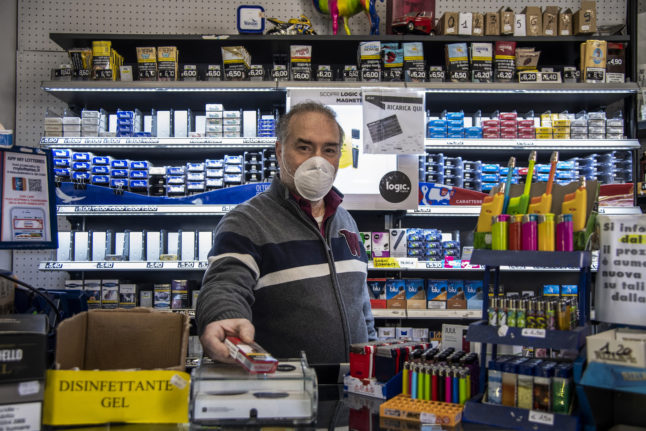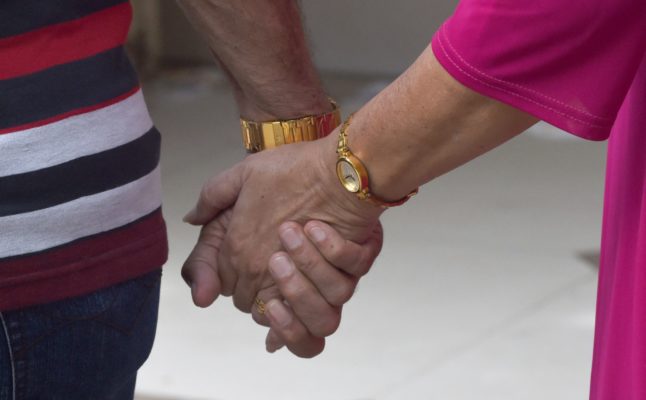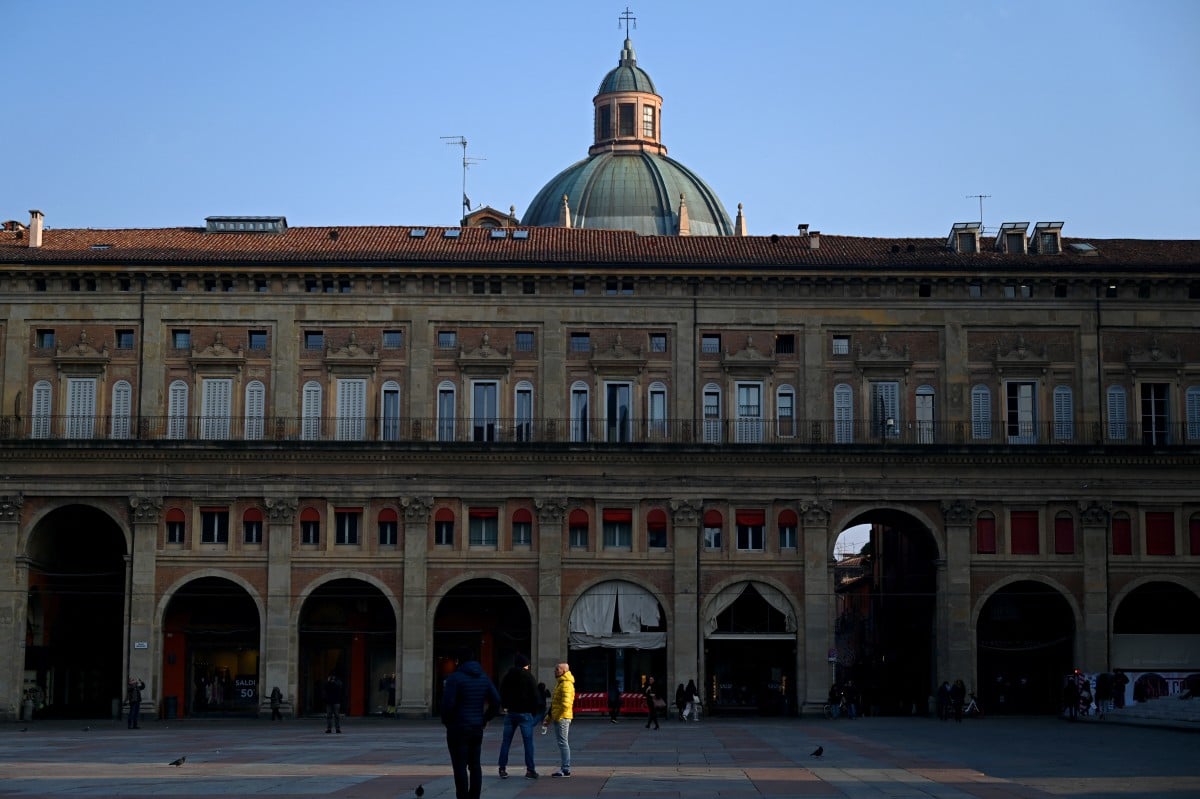Italy’s tabaccheria, or as they’re more informally known, tabaccai (tobacco shops) have long been a place for more than just purchasing cigarettes.
Their iconic emblem of a large T on a small rectangle, found in any Italian city, town and village, is associated with a place for locals to buy bus and metro tickets, pay their bills, or play the lottery.
READ ALSO: Beat the queues: 19 bits of Italian bureaucracy you can do online
With the number of smokers gradually falling in Italy (despite the pandemic reportedly acting as a setback for many former smokers), these non-tobacco related sides of the tabaccaio have become even more important to tabaccai owners’ incomes.
So what exactly can you do in a tabaccheria in Italy?
Buy bus and metro tickets
Outside of a metro station, the tabaccaio is one of the few places where you can buy tickets for local public transport in Italy.
The vast majority of tabaccai sell these tickets, and you’ll pay no more than you would at the metro station – just ask the cashier for biglietti per i mezzi (public transport tickets).
Pay bills
If you’re daunted by the prospect of navigating your way around an Italian phone or utility company’s website and don’t fancy waiting in a long queue at the post office (the other in-person alternative) during its limited hours of operation to pay your bills, then the tabaccheria is for you.
Most utility bills, including gas, electricity, water, can be paid at a tabaccaio, as can phone bills. For larger sums, you’ll typically pay a surcharge of €1 or €2 that goes to the tobacconist for handling the payment – which many find is well worth the added convenience.
Just bring your bill with you and the tobacconist will handle the rest. Most tabaccai accept either cash or card for these payments.
READ ALSO: Five tips to help you survive the Italian pharmacy

Pay fines and taxes
Much like bills, fines for things such as traffic violations and parking tickets can be paid at tabaccai. Social security (INPS) contributions, and some other government charges such as waste tax (tassa sui rifiuti) can also be paid here.
You can buy a marca da bollo, or tax stamp at many (but not all) tabaccai. As a foreigner in Italy applying for things like residency permits and work visas, you’ll quickly become familiar with this term, as a marca da bollo is required for most official government applications.
READ ALSO: Living in Italy: Six essential articles to read
Top up your phone credit
If you’re on a pay-as-you-go Italian phone contract, you can easily top up your credit at a tabaccheria by purchasing a scratch card. The cards come in values of €5, €10, €15, or €20.
If you’re on a fixed rate month-to-month contract of any amount, you can also top up your credit by telling the cashier your phone number and the sum you need to pay.
Play the lottery and place bets
Playing the lottery is a popular pastime in Italy, and if you want to try your luck by buying a lottery ticket, the tabaccaio is the place to head.
Some tabaccai also have slot machines, and some let you place sports bets. Betting in the totocalcio, the Italian football pools, is a particular favourite of Italian football fans.

Buy tickets for sports games and concerts
If you want a ticket for the next Roma-Lazio derby, look no further than your local tabaccheria.
Tobacconists in Italy are licensed to sell tickets for football matches, as well as for certain concerts and other large-scale stadium events.
…Buy cigarettes and tobacco
It’s no secret that you can buy cigarettes and other tobacco products at a tabaccheria. In fact, it’s one of the only places in Italy where you can buy them, as (along with lottery tickets, stamps and tax stamps) these are state-controlled goods that require a special license to sell.
Oddly enough, salt also used to fall under this restricted category – which is while you’ll sometimes still see old signs outside tobacco shops advertising sali e tabacchi: salt and tobacco.
Buy other odds and ends
Of course, cigarettes and lotto cards aren’t the only items on offer at your average tabaccheria.
The range of products sold at an Italian tobacconist usually includes postage stamps, postcards, and greetings cards; stationery, magazines, tissues and playing cards; and chewing gum, crisps, chocolate, and other snacks and bottled drinks.
You’ll also often find small trinkets and souvenirs, such as keychains, jewellery, and children’s toys.
READ ALSO: 15 things you’ll probably never get used to about living in Italy




 Please whitelist us to continue reading.
Please whitelist us to continue reading.
Member comments